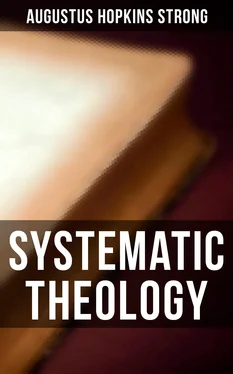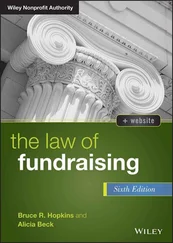There are some who contend that these historical imperfections are due to transcription and that they did not belong to the original documents. Watts, New Apologetic, 71, 111, when asked what is gained by contending for infallible original autographs if they have been since corrupted, replies: “Just what we gain by contending for the original perfection of human nature, though man has since corrupted it. We must believe God's own testimony about his own work. God may permit others to do what, as a holy righteous God, he cannot do himself.” When the objector declares it a matter of little consequence whether a pair of trousers were or were not originally perfect, so long as they are badly rent just now, Watts replies: “The tailor who made them would probably prefer to have it understood that the trousers did not leave his shop in their present forlorn condition. God drops no stitches and sends out no imperfect work.” Watts however seems dominated by an a priori theory of inspiration, which blinds him to the actual facts of the Bible.
Evans, Bib. Scholarship and Inspiration, 40—“Does the present error destroy the inspiration of the Bible as we have it? No. Then why should the original error destroy the inspiration of the Bible, as it was first given? There are spots on yonder sun; do they stop its being the sun? Why, the sun is all the more a sun for the spots. So the Bible.” Inspiration seems to have permitted the gathering of such material as was at hand, very much as a modern editor might construct his account of an army movement from the reports of a number of observers; or as a modern historian might combine the records of a past age with all their imperfections of detail. In the case of the Scripture writers, however, we maintain that inspiration has permitted no sacrifice of moral and religious truth in the completed Scripture, but has woven its historical material together into an organic whole which teaches all the facts essential to the knowledge of Christ and of salvation.
When we come to examine in detail what purport to be historical narratives, we must be neither credulous nor sceptical, but simply candid and open-minded. With regard for example to the great age of the Old Testament patriarchs, we are no more warranted in rejecting the Scripture accounts upon the ground that life in later times is so much shorter, than we are to reject the testimony of botanists as to trees of the Sequoia family between four and five hundred feet high, or the testimony of geologists as to Saurians a hundred feet long, upon the ground that the trees and reptiles with which we are acquainted are so much smaller. Every species at its introduction seems to exhibit the maximum of size and vitality. Weismann, Heredity, 6, 30—“Whales live some hundreds of years; elephants two hundred—their gestation taking two years. Giants prove that the plan upon which man is constructed can also be carried out on a scale far larger than the normal one.” E. Ray Lankester, Adv. of Science, 205–237, 286—agrees with Weismann in his general theory. Sir George Cornewall Lewis long denied centenarism, but at last had to admit it.
Charles Dudley Warner, in Harper's Magazine, Jan. 1895, gives instances of men 137, 140, and 192 years old. The German Haller asserts that “the ultimate limit of human life does not exceed two centuries: to fix the exact number of years is exceedingly difficult.” J. Norman Lockyer, in Nature, regards the years of the patriarchs as lunar years. In Egypt, the sun being used, the unit of time was a year; but in Chaldea, the unit of time was a month, for the reason that the standard of time was the moon. Divide the numbers by twelve, and the lives of the patriarchs come out very much the same length with lives at the present day. We may ask, however, how this theory would work in shortening the lives between Noah and Moses. On the genealogies in Matthew and Luke, see Lord Harvey, Genealogies of our Lord, and his art, in Smith's Bible Dictionary; per contra, see Andrews, Life of Christ, 55 sq. On Quirinius and the enrollment for taxation ( Luke 2:2 ), see Pres. Woolsey, in New Englander, 1869. On the general subject, see Rawlinson, Historical Evidences, and essay in Modern Scepticism, published by Christian Evidence Society, 1:265; Crooker, New Bible and New Uses, 102–126.
(a) What are charged as such are sometimes evil acts and words of good men—words and acts not sanctioned by God. These are narrated by the inspired writers as simple matter of history, and subsequent results, or the story itself, is left to point the moral of the tale.
Instances of this sort are Noah's drunkenness ( Gen. 9:20–27 ); Lot's incest ( Gen. 19:30–38 ); Jacob's falsehood ( Gen. 27:19–24 ); David's adultery ( 2 Sam. 11:1–4 ); Peter's denial ( Mat. 26:69–75 ). See Lee, Inspiration, 265, note. Esther's vindictiveness is not commended, nor are the characters of the Book of Esther said to have acted in obedience to a divine command. Crane, Religion of To-morrow, 241—“In law and psalm and prophecy we behold the influence of Jehovah working as leaven among a primitive and barbarous people. Contemplating the Old Scriptures in this light, they become luminous with divinity, and we are furnished with the principle by which to discriminate between the divine and the human in the book. Particularly in David do we see a rugged, half-civilized, kingly man, full of gross errors, fleshly and impetuous, yet permeated with a divine Spirit that lifts him, struggling, weeping, and warring, up to some of the loftiest conceptions of Deity which the mind of man has conceived. As an angelic being, David is a caricature; as a man of God, as an example of God moving upon and raising up a most human man, he is a splendid example. The proof that the church is of God, is not its impeccability, but its progress.”
(b) Where evil acts appear at first sight to be sanctioned, it is frequently some right intent or accompanying virtue, rather than the act itself, upon which commendation is bestowed.
As Rehab's faith, not her duplicity ( Josh. 2:1–24 ; cf. Heb. 11:31 and James 2:25 ); Jael's patriotism, not her treachery ( Judges 4:17–22 ; cf. 5:24 ). Or did they cast in their lot with Israel and use the common stratagems of war (see next paragraph)? Herder: “The limitations of the pupil are also limitations of the teacher.” While Dean Stanley praises Solomon for tolerating idolatry, James Martineau, Study, 2:137, remarks: “It would be a ridiculous pedantry to apply the Protestant pleas of private judgment to such communities as ancient Egypt and Assyria. … It is the survival of coercion, after conscience has been born to supersede it, that shocks and revolts us in persecution.”
(c) Certain commands and deeds are sanctioned as relatively just—expressions of justice such as the age could comprehend, and are to be judged as parts of a progressively unfolding system of morality whose key and culmination we have in Jesus Christ.
Ex. 20:25—“I gave them statutes that were not good” —as Moses' permission of divorce and retaliation ( Deut. 24:1 ; cf. Mat. 5:31, 32; 19:7–9 ; Ex. 21:24 ; cf. Mat. 5:38, 39 ). Compare Elijah's calling down fire from heaven ( 2 K. 1:10–12 ) with Jesus' refusal to do the same, and his intimation that the spirit of Elijah was not the spirit of Christ ( Luke 9:52–56 ); cf.Mattheson, Moments on the Mount, 253–255, on Mat. 17:8—“Jesus only” : “The strength of Elias paled before him. To shed the blood of enemies requires less strength than to shed one's own blood, and to conquer by fire is easier than to conquer by love.” Hovey: “In divine revelation, it is first starlight, then dawn, finally day.” George Washington once gave directions for the transportation to the West Indies and the sale there of a refractory negro who had given him trouble. This was not at variance with the best morality of his time, but it would not suit the improved ethical standards of today. The use of force rather than moral suasion is sometimes needed by children and by barbarians. We may illustrate by the Sunday School scholar's unruliness which was cured by his classmates during the week. “What did you say to him?” asked the teacher. “We didn't say nothing; we just punched his head for him.” This was Old Testament righteousness. The appeal in the O. T. to the hope of earthly rewards was suitable to a stage of development not yet instructed as to heaven and hell by the coming and work of Christ; compare Ex. 20:12 with Mat. 5:10; 25:46 . The Old Testament aimed to fix in the mind of a selected people the idea of the unity and holiness of God; in order to exterminate idolatry, much other teaching was postponed. See Peabody, Religion of Nature, 45; Mozley, Ruling Ideas of Early Ages; Green, in Presb. Quar., April, 1877:221–252; McIlvaine, Wisdom of Holy Scripture, 328–368; Brit. and For. Evang. Rev., Jan. 1878:1–32; Martineau, Study, 2:137.
Читать дальше












